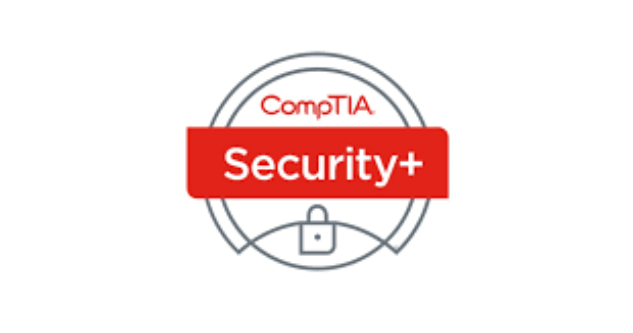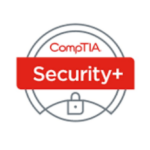Whether you’re considering a career change or looking to advance in the tech industry, this guide will walk you through the essential skills, training options, and career pathways to become a successful cybersecurity professional. SDSU’s Global Campus Cybersecurity Bootcamp offers a comprehensive solution for those ready to take the leap into this high-demand profession.
Why Choose a Career as a Cybersecurity Professional?
Cybersecurity professionals play a crucial role in today’s digital landscape. They build, test, and analyze systems to keep data and information safe from hackers and external threats. The work is diverse and challenging, offering excellent scope for progression and career development.
As organizations increasingly move their operations online and adopt remote work models, the need for cybersecurity expertise has never been greater. This shift has created a significant skills gap in the industry, with demand far outpacing the supply of qualified professionals.
Key Benefits of a Cybersecurity Career
- High demand across virtually every industry sector
- Competitive salaries with excellent growth potential
- Diverse career paths and specialization options
- Continuous learning and professional development
- Meaningful work protecting critical data and systems
- Flexible work arrangements, including remote options
A Day in the Life of a Cybersecurity Professional
Understanding what cybersecurity work actually entails can help you determine if this career path aligns with your interests and strengths. While responsibilities vary by role and organization, here’s a glimpse into what a typical day might look like:

Morning Routine
- Review security alerts and incidents
- Prioritize response activities
- Attend team briefings and coordination meetings
- Perform routine system security checks

Midday Activities
- Monitor networks for security breaches
- Identify and analyze potential vulnerabilities
- Collaborate with IT teams on security implementations
- Update security documentation and protocols

Afternoon Focus
- Test new security software implementations
- Develop training materials for staff
- Write security reports and documentation
- Plan for upcoming security projects and upgrades
Explore Cybersecurity Career Paths
Download our free Cybersecurity Career Handbook to discover the various roles and specializations available in this growing field.
Essential Skills for Cybersecurity Professionals
Success in cybersecurity requires a combination of technical expertise and soft skills. Based on insights from industry professionals, here are the key competencies you’ll need to develop:
Technical Skills

- Network security fundamentals and architecture
- Operating system security (Windows, Linux, macOS)
- Programming and scripting (Python, Java, PowerShell)
- Cloud security principles and implementation
- Security information and event management (SIEM)
- Vulnerability assessment and penetration testing
- Incident response and digital forensics
- Security compliance and risk management
Soft Skills

- Analytical thinking and problem-solving
- Clear communication (technical and non-technical)
- Attention to detail and thoroughness
- Adaptability and continuous learning mindset
- Teamwork and collaboration
- Time management and prioritization
- Ethical judgment and integrity
- Calm decision-making under pressure
“The best cybersecurity professionals have a deep respect for being aware of how much they don’t know, and that really sets apart the entry-level positions from the leadership roles.”
Cybersecurity Career Pathways and Roles
The field of cybersecurity offers diverse career paths with varying responsibilities, skill requirements, and salary potential. Here are some of the most common roles you might pursue:
| Role | Responsibilities | Average Salary* | Growth |
| Security Analyst | Monitor systems, identify vulnerabilities, respond to security incidents | $98,350 | 32% |
| Security Engineer | Design and implement security solutions, develop security architecture | $133,115 | 12% |
| Penetration Tester | Conduct controlled attacks to identify system vulnerabilities | $105,590 | 21% |
| Security Architect | Design comprehensive security systems and infrastructure | $109,020 | 15% |
| CISO/Security Director | Lead security strategy, manage security teams, oversee security operations | $142,530 | 6% |
*National average salaries according to the Bureau of Labor Statistics

Entry-Level Positions
Roles like Security Analyst, SOC Analyst, and IT Support Specialist provide foundational experience in monitoring systems, responding to alerts, and implementing basic security measures.

Mid-Career Specializations
As you gain experience, you can specialize in areas like penetration testing, security architecture, cloud security, or compliance and risk management.

Leadership Positions
Experienced professionals can advance to roles like Security Manager, Director of Information Security, or Chief Information Security Officer (CISO).
Why Choose SDSU’s Cybersecurity Program?
The SDSU Global Campus Cybersecurity Bootcamp, powered by ThriveDX, offers a comprehensive solution for those looking to enter or advance in the cybersecurity field. The program combines theoretical knowledge with practical, hands-on experience to prepare you for real-world challenges.

Program Highlights
- Comprehensive curriculum covering essential cybersecurity domains
- Flexible learning options with online classes and self-guided components
- Hands-on experience through virtual labs and simulation environments
- Industry-aligned training preparing you for certification exams
- Career support services including resume building and interview preparation
- Access to TDX Arena, a cutting-edge virtual educational ecosystem
Global Certification Training
The program builds a strong foundation for future certification exams, including:
- AWS Certified Cloud Practitioner
- Cisco Certified CyberOps Associate
- LPI Linux Essentials
- GIAC Security Essentials
- GIAC Certified Incident Handler
- Certified Information Security Manager
- CompTIA® CySA+, Network+, and Security+
- ISC2 SSCP
Students receive complimentary access to AWS Academy Curriculum and a discount on the AWS Certification exam, plus a 20% discount for CertNexus® Certifications.
Ready to Launch Your Cybersecurity Career?
Take the first step toward becoming a cybersecurity professional with SDSU’s comprehensive bootcamp program.
A Cutting-Edge Learning Experience


Virtual Hands-On Learning
Practical experience often outweighs academic credentials in cybersecurity. TDX Arena offers you the chance to gain that experience through real-world challenges and competitions with aspiring cybersecurity professionals worldwide.

AI-Enhanced Learning
Join monthly workshops on AI in cybersecurity and benefit from curriculum that integrates the latest AI advancements. The AI Assistant in TDX Arena is available 24/7 to help with cybersecurity questions and program support.

Career Support
Boost your success with dedicated career support services. Get help with job search strategies, resume polishing, interview preparation, LinkedIn profile enhancement, and gain access to an exclusive professional networking program.
“Technology is an ever-changing field; we fix things one day for it to break the next. It speaks strongly to those who enjoy a challenge. Constantly learning is part of the job, and just as cyber threats evolve, so must the defenders of data.”
Success Stories: Where Graduates Work
Program participants have secured positions at leading companies with the help of career coaching experts. Here are some of the roles and organizations where graduates have found success:
Security Operations
- SOC Analyst at Binary Defense
- Associate Security Analyst at ReliaQuest
- Information Security Analyst at PlanSource
- Jr. Cyber Hero at ThreatLocker
Infrastructure & Support
- Desktop Support Engineer at Frantic LLC
- Associate Network Systems Engineer at Medicus IT
- Systems Admin at Sarasota County Schools
- NOC Contract Position at L3Harris Technologies
Specialized Roles
- Information Security Engineer at Digital Gaming Corporation
- Jr. Vulnerability Analyst at Fortress
- Jr. Information Systems Security Officer at SiloSmashers
- Software Engineer at Shell Energy

Steps to Become a Cybersecurity Professional
Ready to start your journey toward a rewarding career in cybersecurity? Here’s a roadmap to help you get there:
- Assess your interests and aptitudeDetermine if you have the analytical mindset, problem-solving skills, and interest in technology required for cybersecurity work.
- Build foundational knowledgeStart with basic IT concepts, networking fundamentals, and operating system principles if you’re new to the field.
- Enroll in a structured programChoose a comprehensive training program like SDSU’s Cybersecurity Bootcamp to gain both theoretical knowledge and practical skills.
- Gain hands-on experiencePractice in virtual labs, participate in capture-the-flag competitions, and work on personal projects to build your skills.
- Prepare for certificationsStudy for and obtain industry-recognized certifications that align with your career goals.
- Build your professional networkConnect with other cybersecurity professionals through online forums, local meetups, and industry events.
- Create a strong portfolioDocument your projects, skills, and achievements to showcase to potential employers.
- Apply for entry-level positionsStart your career journey with roles that provide foundational experience and opportunities for growth.
Request the Course Catalog
Get detailed information about SDSU’s Cybersecurity Bootcamp curriculum, schedule, and enrollment options.
Frequently Asked Questions
Do I need prior experience in IT or programming to enroll in the cybersecurity bootcamp?
No prior experience is necessary. The SDSU Global Campus Cybersecurity Bootcamp is designed for beginners and career changers. The curriculum starts with foundational concepts and progressively builds to more advanced topics.
How long does it take to complete the program?
The bootcamp is an accelerated program designed to get you job-ready in a relatively short time frame. The exact duration may vary based on your chosen schedule (full-time or part-time), but most students complete the program within 6-9 months.
Will I be prepared for certification exams after completing the bootcamp?
Yes, the curriculum is aligned with industry-recognized certifications like CompTIA Security+, AWS Certified Cloud Practitioner, and others. While certification exams are not included in the program cost, you’ll receive comprehensive preparation and discounts on some certification fees.
What kind of career support is provided?
The program includes dedicated career support services such as job search strategies, resume building, interview preparation, LinkedIn profile enhancement, and access to a professional networking program. While job placement is not guaranteed, these resources significantly enhance your employment prospects.
How is the program structured? Is it entirely online?
The program offers a flexible learning experience in a virtual classroom. It blends online classes with self-guided learning, hands-on training in simulation labs, and interactive peer collaboration in TDX Arena. This format allows you to learn effectively while maintaining other life commitments.
Launch Your Career as a Cybersecurity Professional
The field of cybersecurity offers tremendous opportunities for those willing to develop the necessary skills and knowledge. With job growth projected at 32% by 2032, qualified cybersecurity professionals are in high demand across virtually every industry.
SDSU’s Global Campus Cybersecurity Bootcamp provides a comprehensive pathway to enter this exciting field, combining theoretical knowledge with practical, hands-on experience. The program’s focus on real-world skills, certification preparation, and career support sets graduates up for success in the cybersecurity job market.
Don’t just settle for a job. Launch a career in a field with exponential growth and make a meaningful impact by protecting critical data and systems from evolving threats.
Ready to Begin Your Cybersecurity Journey?
Take the first step toward a rewarding career as a cybersecurity professional with SDSU’s comprehensive bootcamp program.
or call (619) 839-3030 to speak with an admissions advisor
Trending Posts
CompTIA Security+ SY0-701 All Acronyms
We offer a compact glossary that turns exam terms into practical ideas. This introduction maps core concepts like…
Get Technology Support For Normal People
Unboxing a new device can feel exciting and a bit confusing. Manuals often skip basics, and many folks…
Easy Tech Solutions for Beginners – Start Here
Welcome. This guide shows a clear path to identify easy tech solutions and steps you can take today…
Simple Troubleshooting Tips for Tech Issues Made Easy
This guide turns proven help desk methods into clear steps anyone can follow at home or at work.…
Accessible Tech Support for Non-Techies: Easy Solutions
This guide promises a practical, step-by-step approach to make help simple and respectful of customers’ time and stress.…
Straightforward Tech Help for Everyday Problems | Expert…
Facing a glitch? This guide gives clear, step-by-step solutions to common device issues. New users often lean on…
Tech Guidance for the Average Person: Simplify Your…
This quick guide turns industry know-how into plain steps you can use today. Members of the Forbes Technology…
Uncomplicated Tech Advice for Beginners: Your Tech Simplified
This short guide promises practical, step-by-step tech tips that help everyday people and new users build confidence. You…
Practical Tech Support for Everyday Users: Expert Help
Clear, human-centered help makes complex systems feel manageable. Many companies drown incident updates in jargon and rigid steps.…
Trending Posts
Latest Stories
CompTIA Security+ SY0-701 All Acronyms
We offer a compact glossary that turns exam terms into practical ideas. This introduction maps…
Get Technology Support For Normal People
Unboxing a new device can feel exciting and a bit confusing. Manuals often skip basics,…
Easy Tech Solutions for Beginners – Start Here
Welcome. This guide shows a clear path to identify easy tech solutions and steps you…
Simple Troubleshooting Tips for Tech Issues Made Easy
This guide turns proven help desk methods into clear steps anyone can follow at home…





 By
By



















